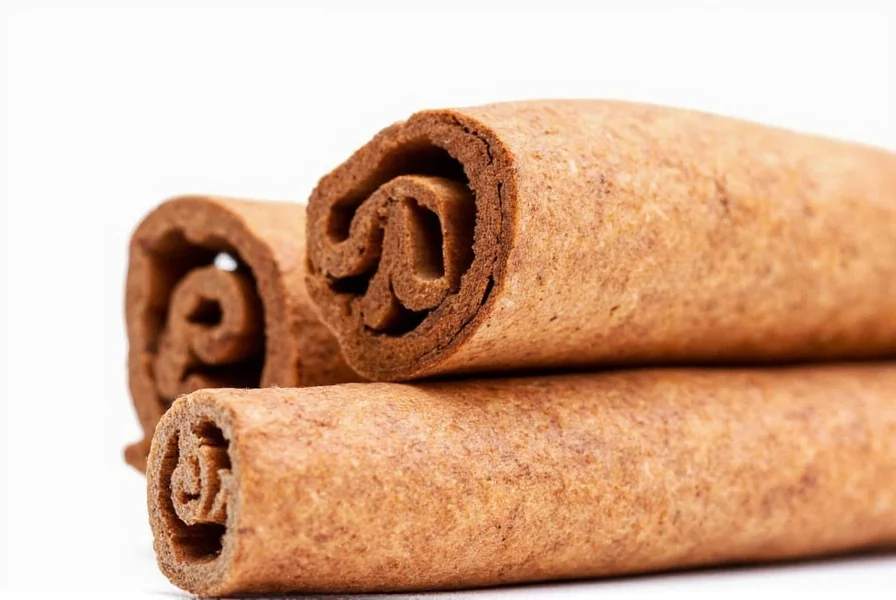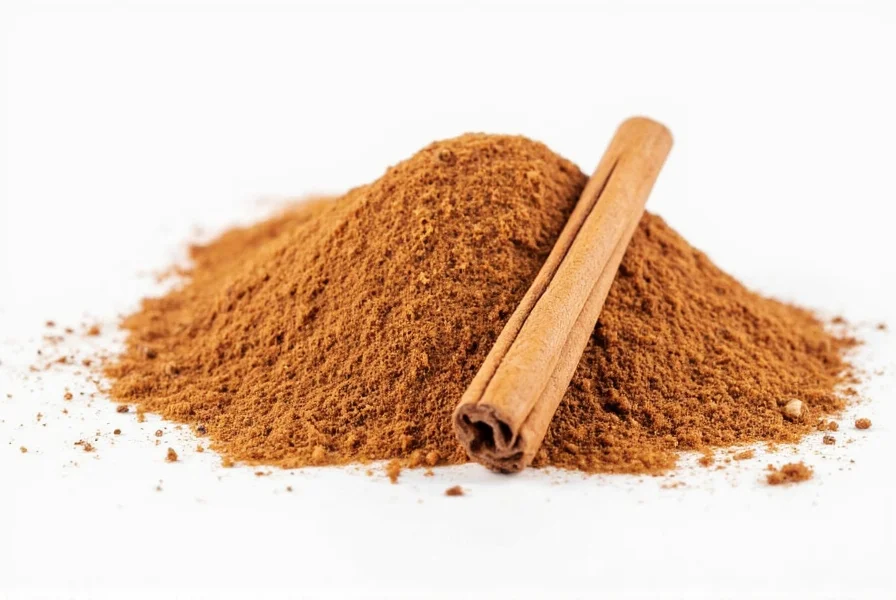For individuals managing irritable bowel syndrome (IBS) or following a low FODMAP elimination diet, understanding which spices are safe is crucial for symptom management. Cinnamon ranks among the most versatile and digestive-friendly options available to those restricting fermentable carbohydrates.
Understanding Cinnamon's FODMAP Profile
FODMAPs (Fermentable Oligosaccharides, Disaccharides, Monosaccharides, and Polyols) are short-chain carbohydrates that can trigger digestive distress in sensitive individuals. The Monash University FODMAP app, considered the gold standard for FODMAP information, has specifically tested cinnamon and confirmed its low FODMAP status.
What makes cinnamon particularly valuable for low FODMAP cooking is its dual benefit: not only is it low in problematic carbohydrates, but some research suggests cinnamon may actually support digestive health through anti-inflammatory properties. This makes is ground cinnamon low fodmap a question with a particularly positive answer for those managing IBS symptoms.
Cinnamon Serving Size Guidelines
While cinnamon is low FODMAP, portion control remains essential. The certified low FODMAP serving size is:
| Cinnamon Type | Low FODMAP Serving Size | High FODMAP Threshold |
|---|---|---|
| Ceylon Cinnamon | 6.0g (2 tsp) | More than 6.0g |
| Cassia Cinnamon | 6.0g (2 tsp) | More than 6.0g |
Interestingly, both major cinnamon varieties—Ceylon ("true" cinnamon) and the more common Cassia cinnamon—share identical FODMAP thresholds. This means cinnamon serving size low fodmap considerations apply equally regardless of which type you use in your cooking.

Practical Usage in Low FODMAP Cooking
Cinnamon's versatility makes it valuable throughout the low FODMAP diet phases:
- Elimination phase: Use up to 2 teaspoons daily in oatmeal, smoothies, or roasted vegetables
- Reintroduction phase: Test cinnamon alongside other spices to identify individual tolerance levels
- Personalization phase: Incorporate as a flavor enhancer in FODMAP-friendly recipes
Many people wonder is cinnamon safe on low fodmap diet during special occasions. The good news is that cinnamon works well in holiday baking—just monitor total servings when combining with other ingredients. A single cinnamon roll typically contains about 1 teaspoon of cinnamon, keeping it within safe limits when other FODMAP sources are controlled.
Cinnamon vs. Other Common Spices
Compared to other popular spices, cinnamon offers distinct advantages for low FODMAP eating:
- Unlike garlic and onion (high FODMAP), cinnamon provides flavor without triggering common IBS symptoms
- More versatile than some low FODMAP spices that work only in specific dishes
- Contains cinnamaldehyde, which may support digestive health
When exploring low fodmap spice alternatives, consider that cinnamon pairs well with other FODMAP-friendly options like ginger, turmeric, and nutmeg. This creates complex flavor profiles without digestive risk.
Scientific Backing and Testing Methodology
Monash University's certification carries significant weight in the medical community. Their testing uses specific methodology that measures actual FODMAP content rather than making assumptions based on food composition. This evidence-based approach explains why monash university cinnamon fodmap information is considered definitive by dietitians worldwide.
Research published in the Journal of Gastroenterology and Hepatology confirms that properly implemented low FODMAP diets, using accurate food data like that for cinnamon, improve symptoms in 50-80% of IBS patients. This underscores the importance of relying on verified information rather than anecdotal reports when determining cinnamon for ibs sufferers.

Common Misconceptions About Cinnamon and FODMAPs
Several myths persist in online communities:
- Myth: Ceylon cinnamon is lower FODMAP than Cassia
Fact: Both varieties have identical FODMAP thresholds according to Monash testing - Myth: Cinnamon triggers symptoms because it's "warming"
Fact: Thermal properties don't correlate with FODMAP content—many tolerate cinnamon well - Myth: Cinnamon becomes high FODMAP when heated
Fact: Cooking doesn't increase FODMAP content—only serving size matters
Incorporating Cinnamon Into Your Low FODMAP Lifestyle
For those wondering cinnamon for ibs sufferers practical applications, consider these evidence-based suggestions:
- Add to lactose-free yogurt with low FODMAP fruit like blueberries
- Use in homemade chai tea with almond milk (ensure almond milk is within serving limits)
- Sprinkle on roasted carrots or sweet potatoes
- Include in protein smoothies for flavor without digestive risk
During the reintroduction phase of the low FODMAP diet, test cinnamon separately from other potential triggers. Start with 1 teaspoon daily for three days, monitoring symptoms before increasing to the full 2-teaspoon serving. This systematic approach helps determine your personal tolerance level.
When Cinnamon Might Cause Issues
While cinnamon itself is low FODMAP, problems can occur when:
- Combined with high FODMAP ingredients in recipes
- Consumed in excessive quantities (more than 2 tablespoons)
- Used in products containing hidden high FODMAP ingredients
If you experience symptoms after consuming cinnamon within recommended limits, consult a registered dietitian specializing in digestive health. They can help determine whether you're reacting to cinnamon itself or another component in your meal.
Conclusion
Cinnamon represents one of the most versatile and reliably low FODMAP spices available. With proper portion control (up to 2 teaspoons per serving), it can enhance flavor while supporting digestive comfort. The scientific consensus from Monash University provides clear guidance for those managing IBS through dietary approaches.
Is cinnamon allowed on the low FODMAP diet?
Yes, both Ceylon and Cassia cinnamon are certified low FODMAP by Monash University at servings of 6.0 grams (approximately 2 teaspoons) or less per meal. This makes cinnamon a safe spice option for those following the low FODMAP diet for IBS management.
How much cinnamon can I have on a low FODMAP diet?
The certified low FODMAP serving size for cinnamon is 6.0 grams, which equals approximately 2 teaspoons. Consuming more than this amount may push you into the high FODMAP range, potentially triggering digestive symptoms if you're sensitive to FODMAPs.
Is there a difference between Ceylon and Cassia cinnamon for FODMAP content?
According to Monash University testing, both Ceylon ("true" cinnamon) and Cassia cinnamon have identical FODMAP thresholds. Both varieties are low FODMAP at 6.0 grams (2 teaspoons) or less per serving. The choice between them should be based on flavor preference rather than FODMAP concerns.
Can I use cinnamon during all phases of the low FODMAP diet?
Yes, cinnamon can be used throughout all phases of the low FODMAP diet. During the elimination phase, use it within the recommended 2-teaspoon limit. During reintroduction, you can test your personal tolerance to larger amounts. In the personalization phase, incorporate it according to your established tolerance level.
Why is cinnamon considered low FODMAP when other spices aren't?
Cinnamon contains minimal amounts of fermentable carbohydrates that trigger IBS symptoms. Unlike garlic and onion (which are high in fructans), cinnamon's composition naturally lacks significant FODMAP compounds. Monash University's specific laboratory testing confirmed cinnamon's low FODMAP status, making it one of the few spices that's reliably safe for most people following this dietary approach.










 浙公网安备
33010002000092号
浙公网安备
33010002000092号 浙B2-20120091-4
浙B2-20120091-4